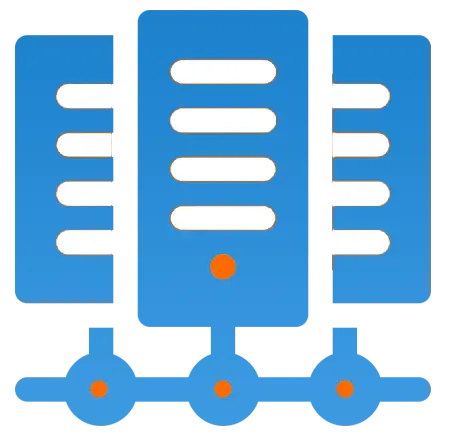Get 69% Off on Cloud Hosting : Claim Your Offer Now!
- Products
-
Compute
Compute
- Predefined TemplatesChoose from a library of predefined templates to deploy virtual machines!
- Custom TemplatesUse Cyfuture Cloud custom templates to create new VMs in a cloud computing environment
- Spot Machines/ Machines on Flex ModelAffordable compute instances suitable for batch jobs and fault-tolerant workloads.
- Shielded ComputingProtect enterprise workloads from threats like remote attacks, privilege escalation, and malicious insiders with Shielded Computing
- GPU CloudGet access to graphics processing units (GPUs) through a Cyfuture cloud infrastructure
- vAppsHost applications and services, or create a test or development environment with Cyfuture Cloud vApps, powered by VMware
- Serverless ComputingNo need to worry about provisioning or managing servers, switch to Serverless Computing with Cyfuture Cloud
- HPCHigh-Performance Computing
- BaremetalBare metal refers to a type of cloud computing service that provides access to dedicated physical servers, rather than virtualized servers.
-
Storage
Storage
- Standard StorageGet access to low-latency access to data and a high level of reliability with Cyfuture Cloud standard storage service
- Nearline StorageStore data at a lower cost without compromising on the level of availability with Nearline
- Coldline StorageStore infrequently used data at low cost with Cyfuture Cloud coldline storage
- Archival StorageStore data in a long-term, durable manner with Cyfuture Cloud archival storage service
-
Database
Database
- MS SQLStore and manage a wide range of applications with Cyfuture Cloud MS SQL
- MariaDBStore and manage data with the cloud with enhanced speed and reliability
- MongoDBNow, store and manage large amounts of data in the cloud with Cyfuture Cloud MongoDB
- Redis CacheStore and retrieve large amounts of data quickly with Cyfuture Cloud Redis Cache
-
Automation
Automation
-
Containers
Containers
- KubernetesNow deploy and manage your applications more efficiently and effectively with the Cyfuture Cloud Kubernetes service
- MicroservicesDesign a cloud application that is multilingual, easily scalable, easy to maintain and deploy, highly available, and minimizes failures using Cyfuture Cloud microservices
-
Operations
Operations
- Real-time Monitoring & Logging ServicesMonitor & track the performance of your applications with real-time monitoring & logging services offered by Cyfuture Cloud
- Infra-maintenance & OptimizationEnsure that your organization is functioning properly with Cyfuture Cloud
- Application Performance ServiceOptimize the performance of your applications over cloud with us
- Database Performance ServiceOptimize the performance of databases over the cloud with us
- Security Managed ServiceProtect your systems and data from security threats with us!
- Back-up As a ServiceStore and manage backups of data in the cloud with Cyfuture Cloud Backup as a Service
- Data Back-up & RestoreStore and manage backups of your data in the cloud with us
- Remote Back-upStore and manage backups in the cloud with remote backup service with Cyfuture Cloud
- Disaster RecoveryStore copies of your data and applications in the cloud and use them to recover in the event of a disaster with the disaster recovery service offered by us
-
Networking
Networking
- Load BalancerEnsure that applications deployed across cloud environments are available, secure, and responsive with an easy, modern approach to load balancing
- Virtual Data CenterNo need to build and maintain a physical data center. It’s time for the virtual data center
- Private LinkPrivate Link is a service offered by Cyfuture Cloud that enables businesses to securely connect their on-premises network to Cyfuture Cloud's network over a private network connection
- Private CircuitGain a high level of security and privacy with private circuits
- VPN GatewaySecurely connect your on-premises network to our network over the internet with VPN Gateway
- CDNGet high availability and performance by distributing the service spatially relative to end users with CDN
-
Media
-
Analytics
Analytics
-
Security
Security
-
Network Firewall
- DNATTranslate destination IP address when connecting from public IP address to a private IP address with DNAT
- SNATWith SNAT, allow traffic from a private network to go to the internet
- WAFProtect your applications from any malicious activity with Cyfuture Cloud WAF service
- DDoSSave your organization from DoSS attacks with Cyfuture Cloud
- IPS/ IDSMonitor and prevent your cloud-based network & infrastructure with IPS/ IDS service by Cyfuture Cloud
- Anti-Virus & Anti-MalwareProtect your cloud-based network & infrastructure with antivirus and antimalware services by Cyfuture Cloud
- Threat EmulationTest the effectiveness of cloud security system with Cyfuture Cloud threat emulation service
- SIEM & SOARMonitor and respond to security threats with SIEM & SOAR services offered by Cyfuture Cloud
- Multi-Factor AuthenticationNow provide an additional layer of security to prevent unauthorized users from accessing your cloud account, even when the password has been stolen!
- SSLSecure data transmission over web browsers with SSL service offered by Cyfuture Cloud
- Threat Detection/ Zero DayThreat detection and zero-day protection are security features that are offered by Cyfuture Cloud as a part of its security offerings
- Vulnerability AssesmentIdentify and analyze vulnerabilities and weaknesses with the Vulnerability Assessment service offered by Cyfuture Cloud
- Penetration TestingIdentify and analyze vulnerabilities and weaknesses with the Penetration Testing service offered by Cyfuture Cloud
- Cloud Key ManagementSecure storage, management, and use of cryptographic keys within a cloud environment with Cloud Key Management
- Cloud Security Posture Management serviceWith Cyfuture Cloud, you get continuous cloud security improvements and adaptations to reduce the chances of successful attacks
- Managed HSMProtect sensitive data and meet regulatory requirements for secure data storage and processing.
- Zero TrustEnsure complete security of network connections and devices over the cloud with Zero Trust Service
- IdentityManage and control access to their network resources and applications for your business with Identity service by Cyfuture Cloud
-
-
Compute
- Solutions
-
Solutions
Solutions
-
 Cloud
Hosting
Cloud
Hosting
-
 VPS
Hosting
VPS
Hosting
-
GPU Cloud
-
 Dedicated
Server
Dedicated
Server
-
 Server
Colocation
Server
Colocation
-
 Backup as a Service
Backup as a Service
-
 CDN
Network
CDN
Network
-
 Window
Cloud Hosting
Window
Cloud Hosting
-
 Linux
Cloud Hosting
Linux
Cloud Hosting
-
Managed Cloud Service
-
Storage as a Service
-
 VMware
Public Cloud
VMware
Public Cloud
-
 Multi-Cloud
Hosting
Multi-Cloud
Hosting
-
 Cloud
Server Hosting
Cloud
Server Hosting
-
 Bare
Metal Server
Bare
Metal Server
-
 Virtual
Machine
Virtual
Machine
-
 Magento
Hosting
Magento
Hosting
-
Remote Backup
-
 DevOps
DevOps
-
 Kubernetes
Kubernetes
-
 Cloud
Storage
Cloud
Storage
-
NVMe Hosting
-
 DR
as s Service
DR
as s Service
-
-
Solutions
- Marketplace
- Pricing
- Resources
- Resources
-
By Product
Use Cases
-
By Industry
- Company
-
Company
Company
-
Company
The role of cloud storage in the internet of things (IoT) and edge computing.
Table of Contents
Introduction:
In the rapidly evolving fields of the Internet of Things (IoT) and edge computing, cloud storage plays a pivotal role in managing the vast amounts of data generated by connected devices. As IoT continues to expand, the need for efficient, scalable, and reliable data storage solutions becomes increasingly critical.
Cloud storage in IoT offers a flexible and cost-effective approach to storing, processing, and analyzing this data, enabling seamless connectivity and enhanced functionality.
This blog explores the significance of cloud storage in IoT and the various cloud storage models for IoT that are shaping this landscape. From centralized repositories that provide robust data management to hybrid models that integrate edge computing capabilities, these cloud storage models in IoT are essential for handling diverse data requirements and optimizing performance.
So, let’s get started!
What is Cloud Storage?
Cloud storage is a service of cloud computing that operates on a virtualized storage infrastructure. It enables the transmission of data and storing of data and files on remote storage systems.
Cloud storage enables companies to store, manage, backup, and process data over cloud-enabled platforms providing flexibility, scalability, and connectivity. It eliminates the requirement of buying and managing your own private storage infrastructure as it offers you scalability, agility, and durability, with any time, anywhere data access.
Cloud storage is a powerful solution that leverages a virtualized storage infrastructure to provide accessible interfaces, multi-tenancy, near-instant elasticity and scalability, and metered resources. The data is stored in logical pools on commodity storage servers that can be located on-premises or managed by a third-party cloud provider, providing a flexible and scalable data storage solution.
When different models of cloud storage are implemented correctly it helps businesses with digital transformation, efficiency, and growth. Typically, cloud storage is charged on a per-consumption, monthly basis.
The IoT environment leverages various cloud computing services and solutions, some of which offer built-in capabilities such as machine learning, business intelligence tools, and SQL engines to handle the demanding tasks required in IoT.
Let us understand how cloud storage benefits the IoT ecosystem and edge computing in this article. But before that learn about what IoT and edge computing are.
What is IoT (Internet of Things)?
IoT, or Internet of Things, refers to the network of connected devices that communicate with each other and the cloud, encompassing everything from simple household items to advanced industrial tools. The falling cost of integrating computing power into small devices has made IoT increasingly accessible and widespread.
The role of cloud storage in the internet of things (IoT)
Cloud storage plays a crucial role in the IoT by providing a centralized repository for the vast amount of data generated by connected devices. IoT devices often have limited storage capacity and computing power, making it necessary to store and process the data in the cloud.
The role of cloud storage in the Internet of Things (IoT) can be summarized as follows:
Scalable storage
Cloud storage provides a scalable solution for storing this data and devices of Internet of things generate massive amounts of data.
Data management
Cloud storage enables efficient management of the data generated by IoT devices, making it effortless to access, analyze, and use the data.
Processing capabilities
To extract insights from the data generated by IoT devices the cloud storage provides access to powerful processing capabilities, such as machine learning and analytics.
Cost-effective solution
By leveraging the cloud storage, organizations can avoid the costs associated with building and maintaining on-premise storage solutions.
Security and privacy
To protect sensitive data from unauthorized access or theft cloud storage services provided by cloud service providers give robust security measures to their clients, such as encryption and access control.
Improved decision-making
By using cloud storage and processing capabilities, organizations can make informed decisions based on the data generated by IoT devices.
Understand what Edge Computing is
Edge computing prioritizes reducing latency and bandwidth consumption by strategically placing computing power close to data sources. This approach reduces the reliance on cloud computing by migrating processes to local devices such as user computers, IoT devices, or edge servers.
By doing this, we can save time and resources that would otherwise be wasted in transferring data back and forth between these local places and the cloud.
By locating computing services near to the users, companies can take benefit of the flexibility of hybrid cloud computing. This minimizes the amount of long-distance communication between a client and server.
Cloud storage is crucial for edge computing as it provides a centralized repository for data generated by edge devices. It allows effective data management and sharing.
The role of cloud storage in Edge Computing
Cloud storage is an important part of edge computing. It provides a place to store data generated by edge devices and gives organizations the ability to effectively manage and use that data. Cloud storage offers many benefits, including scalability, cost-effectiveness, and security.
Data aggregation
Devices located at the edge of a network typically produce large amounts of data. Cloud storage can provide a centralized repository for this data, which can then be aggregated, stored, and further processed in the cloud.
Processing power
Edge computing devices have limitations in terms of their processing power and storage capacity. Cloud storage provides access to powerful processing capabilities, allowing for more advanced analytics and machine learning algorithms to be applied to the data.
Scalability
Cloud storage is a great solution for storing large amounts of data generated by edge computing devices. As more devices and data are created, cloud storage can easily expand to meet the demand.
Security
Cloud storage is vital for keeping data secure, with features like encryption and access control to stop unauthorized access or theft. This is especially important in edge computing, where data might be generated by devices in remote locations.
Cost-effective
Like many things in life, edge computing devices can be expensive to deploy and maintain. That’s why cloud storage provides a cost-effective solution for storing and managing the data generated by these devices.
Conclusion
IoT and edge computing integration with cloud storage solutions are the future of the internet. Presently, they are solving various hindrances that appear in business along with opening new opportunities in business & research. New solutions and services are continuously being created to address current challenges, and edge computing and IoT have significant potential to be fully realized in the future.
The cloud can play a big role in helping organizations store, manage, and make use of the data generated by IoT devices. Cloud and edge computing, when used together, can help minimize latency and enhance response times. This, in turn, can help organizations make better decisions based on the data.
Recent Post

Stay Ahead of the Curve.
Join the Cloud Movement, today!
© Cyfuture, All rights reserved.
Send this to a friend

 Pricing
Calculator
Pricing
Calculator
 Power
Power
 Utilities
Utilities VMware
Private Cloud
VMware
Private Cloud VMware
on AWS
VMware
on AWS VMware
on Azure
VMware
on Azure Service
Level Agreement
Service
Level Agreement 


















